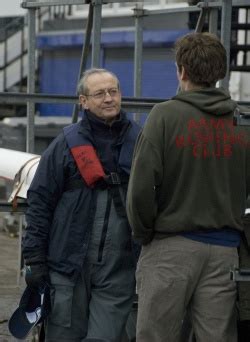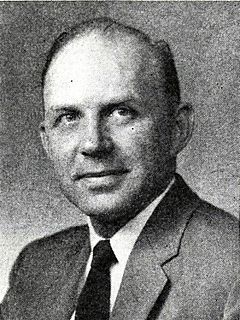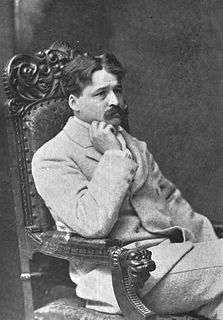A Quote by Maria Montessori
A teacher, therefore, who would think that he could prepare himself for his mission through study alone would be mistaken. The first thing required of a teacher is that he be rightly disposed for his task.
Related Quotes
Often nothing keeps the pupil on the move but his faith in his teacher, whose mastery is now beginning to dawn on him .... How far the pupil will go is not the concern of the teacher and master. Hardly has he shown him the right way when he must let him go on alone. There is only one thing more he can do to help him endure his loneliness: he turns him away from himself, from the Master, by exhorting him to go further than he himself has done, and to "climb on the shoulders of his teacher."
The first responsibility of the Muslim is as teacher. That is his job, to teach. His first school, his first classroom is within the household. His first student is himself. He masters himself and then he begins to convey the knowledge that he has acquired to the family. The people who are closest to him.
History, when rightly written, is but a record of providence; and he who would read history rightly, must read it with his eyes constantly fixed on the hand of God. This statement of a nineteenth-century historian sums up the responsibility of the Christian teacher of history, for he who would teach history or any subject matter rightly, must teach it with his eyes constantly fixed on the hand of God.
[He] would drive his sculling boat through mile after mile, in a silent brutal programe of conditioning - he would work all alone, at first light, punishing himself without mercy. His was the private dignity of the lone athlete, with a grim purpose, fighting a solitary war with himself, toward a goal only he can see.
The purpose of studying Buddhism is not to study Buddhism, but to study ourselves. That is why we have teaching. But the teaching is not ourselves. It is some explanation of ourselves. To study the teaching is to know yourselves. That is why we do not ever attach to the teaching, or to the teacher. The moment you meet a teacher you should leave the teacher, and you should be independent. You want a teacher so that you can be independent. So you study yourselves. You have the teacher for yourselves, not for the teacher.
If you would be a better teacher, teach by the spirit. That is the thing that gives strength and power, meaning and life, to our otherwise weak efforts... remember, you cannot give away that which you do not possess. Study the life of the master. You do not have to have a college degree to be an efficient teacher. But you do have to become acquainted with the life and teachings of the master to be an effective teacher in the church.
Art is created to make us, to make our passage through the world better, fruitful - and I would say that every story in the end, if it is good, tells us something. This is actually what I meant when I said a novelist is a teacher. Which is why I am constantly dealing with "didactic". Now a teacher in the sense I use it is not somebody who has the profession of standing in front of children, with a piece of chalk in his hand scribbling on the blackboard. That is not the teacher I have in mind. The teacher I have in mind is something less tangible.
...we discovered that education is not something which the teacher does, but that it is a natural process which develops spontaneously in the human being. It is not acquired by listening to words, but in virtue of experiences in which the child acts on his environment. The teacher's task is not to talk, but to prepare and arrange a series of motives for cultural activity in a special environment made for the child.
A good teacher can never be fixed in a routine... each moment requires a sensitive mind that is constantly changing and constantly adapting. A teacher must never impose this student to fit his favourite pattern; a good teacher functions as a pointer, exposing his student's vulnerability and causing him to explore both internally and finally integrating himself with his being. Martial art should not be passed out indiscriminately.
A teacher can never truly teach unless he is still learning himself. A lamp can never light another lamp unless it continues to burn its own flame. The teacher who has come to the end of his subject, who has no living traffic with his knowledge but merely repeats his lesson to his students, can only load their minds, he cannot quicken them.

































